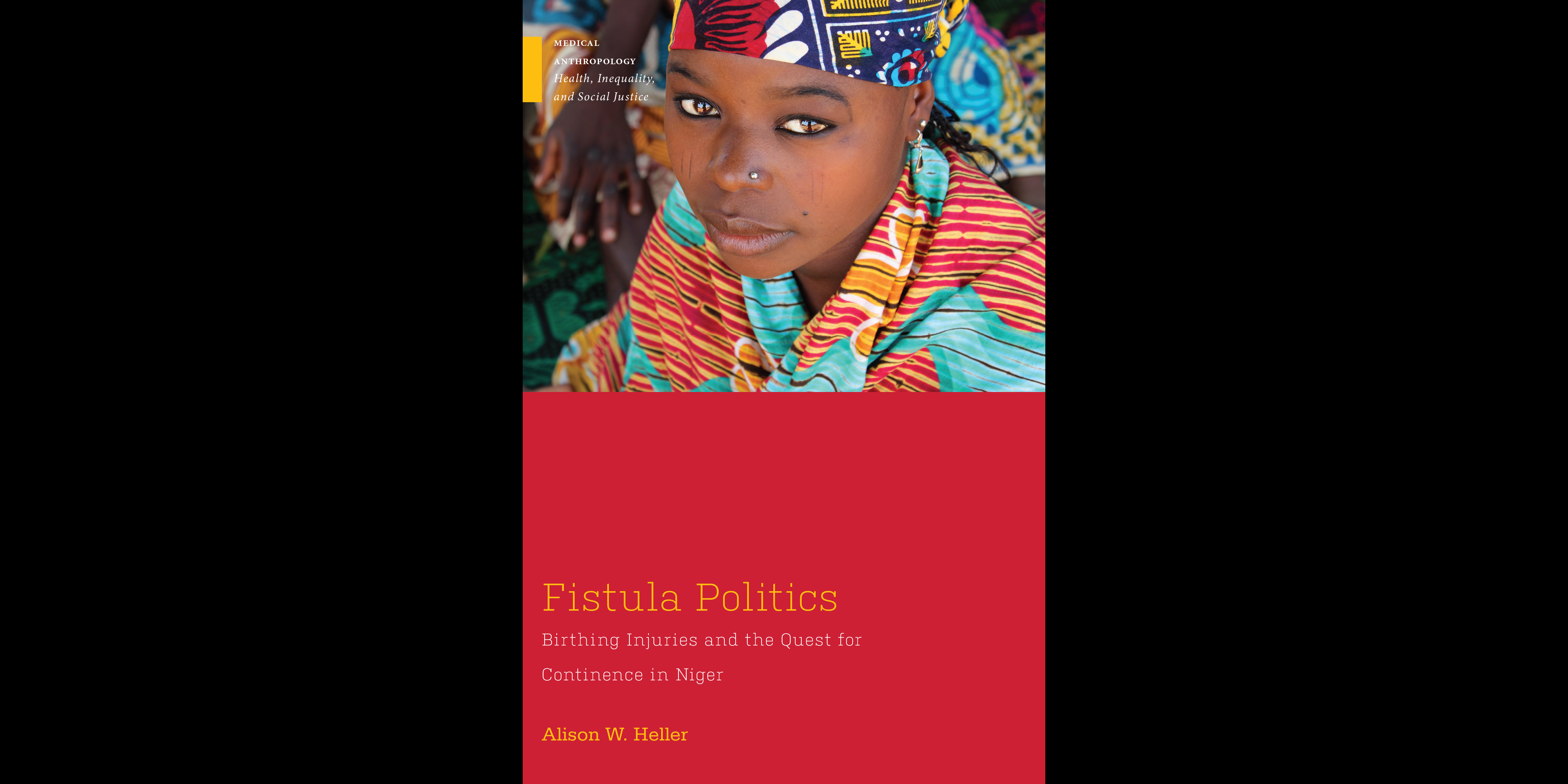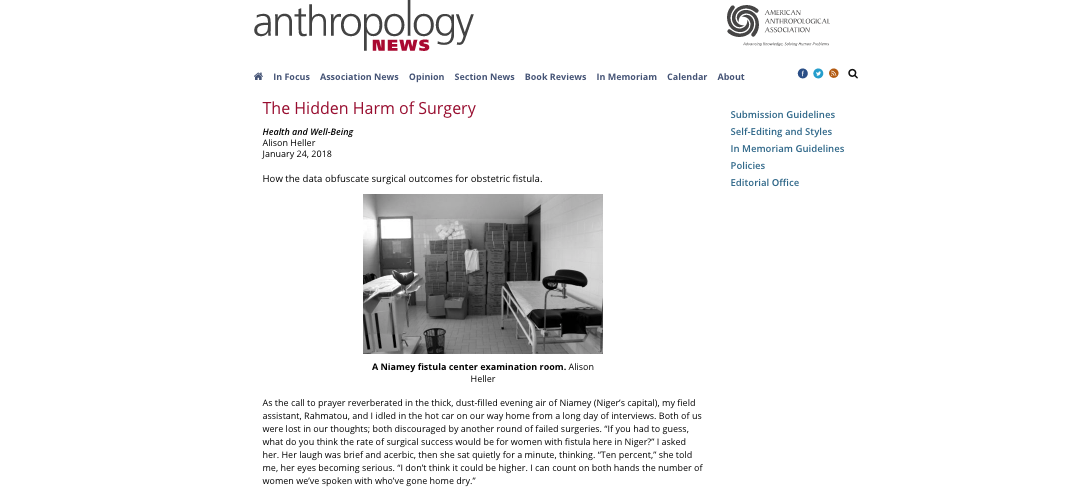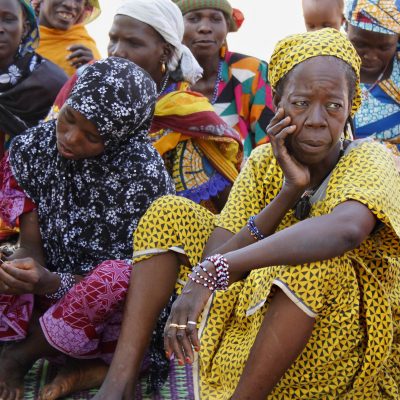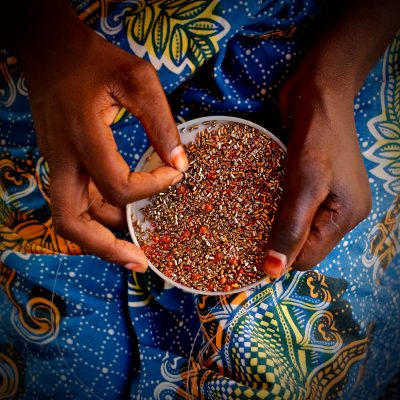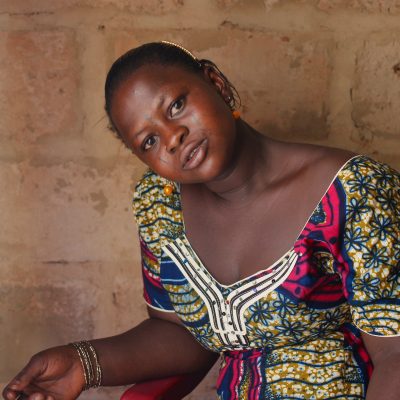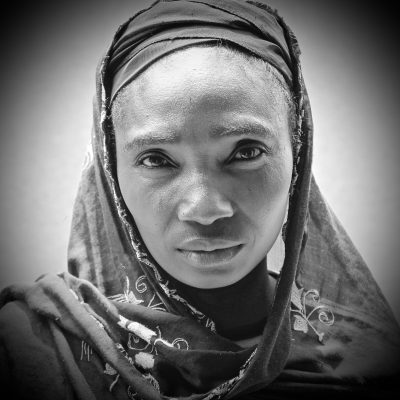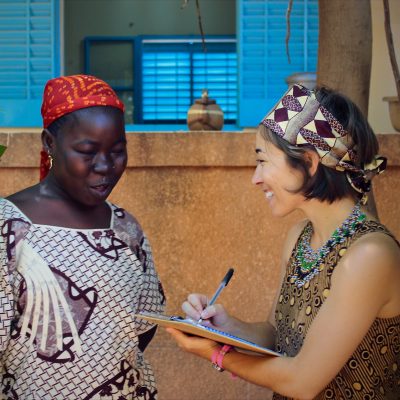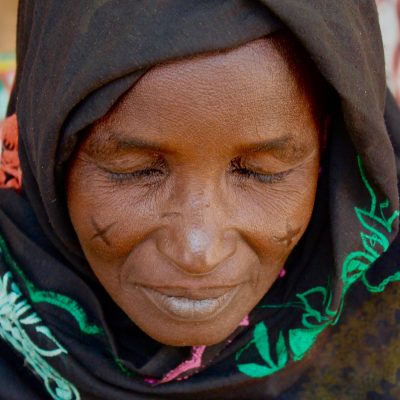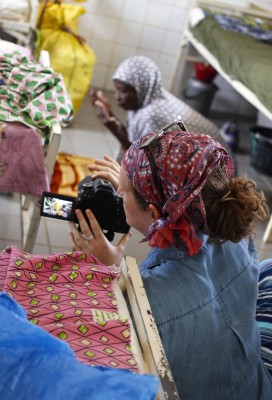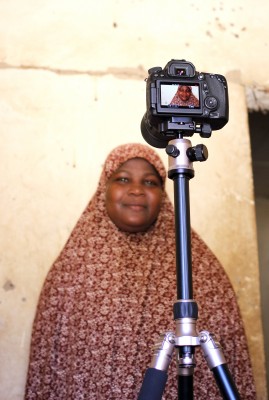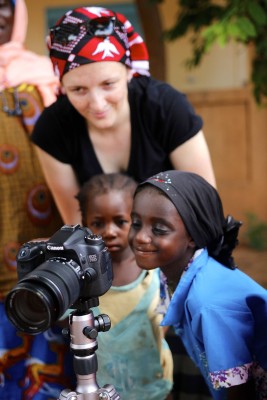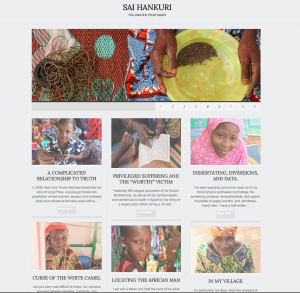My Book, Fistula Politics: Birthing Injuries and the Quest for Continence in Niger, is now available on Amazon.
Anthropology News: The Hidden Harm of Surgery
How the data obfuscate surgical outcomes for obstetric fistula. Read the article here.
Bad Births, Bad Bodies: School for Advanced Research Colloquium
In the West African country of Niger, 1 in 23 women will die from maternal causes and 5-13 more will survive with chronic disabilities. One particular injury, obstetric fistula — caused by prolonged obstructed labor and resulting in chronic incontinence — is all too common. How are women who suffer from fistula represented in the Global North? Does it matter? What is the lived experience of chronic incontinence? Can surgery make a difference? How do local networks of care expand or contract in times of illness? Based on 18 months of research in Niger, this talk will explore these questions.
From August 2016 – May 2017, I’ve spent time at Santa Fe’s School for Advanced Research as a Vera Campbell Resident Scholar. On November 9th, 2016 I gave this talk about my research.
Spaces of Waiting, A Sapiens Photo Essay
SAPIENS Photo Essay
This photo essay in the journal Sapiens looks at the lives of women with fistula as they navigate their conditions, their personal lives, and their quest for care.
Exigencies in the Field, Medicine Anthropology Theory
In the article “Exigencies in the field: Shifting social, political, and theoretical realities of health research in Niger,” in Medicine Anthropology Theory, I talk about the process of adapting a research project.
Living with Fistula, A Clip on Film
In fall of 2014, my friend Dana Sacco and I returned to Niger to get some follow-up data and to make a short documentary about obstetric fistula and barriers to accessing emergency obstetric care in the Sahel.The editing process is slow, and we are only now putting together a story arc, but here’s a six-minute clip to give you an idea of what’s coming:
Sai Hankuri: Fieldnotes from Niger
While in the field I kept a blog, titled Sai Hankuri: Fieldnotes From Niger. Among other topics, in it, I wrote about an hour in an emergency maternity hospital, cultural conceptions of acceptable risk and my own struggle to find that line, men’s role in the African narrative, shame, or the media’s often misleading portrayal of women with fistula. The blog was a form of public fieldnotes. Some days, I wrote almost verbatim excerpts from my pocket notebook, other days I used the site as an emotional release valve, finding comfort through the act of processing an experience. Further along in my research, I used the space to analyze my data – my first attempt to translate what I was experiencing on the ground into a theory.
Sai hankuri means ‘have patience,’ a exhortation, invocation, and code to live by that proved particularly salient (and challenging!) both to the women I came to know in Niger and for me personally throughout my time in the field and beyond.
